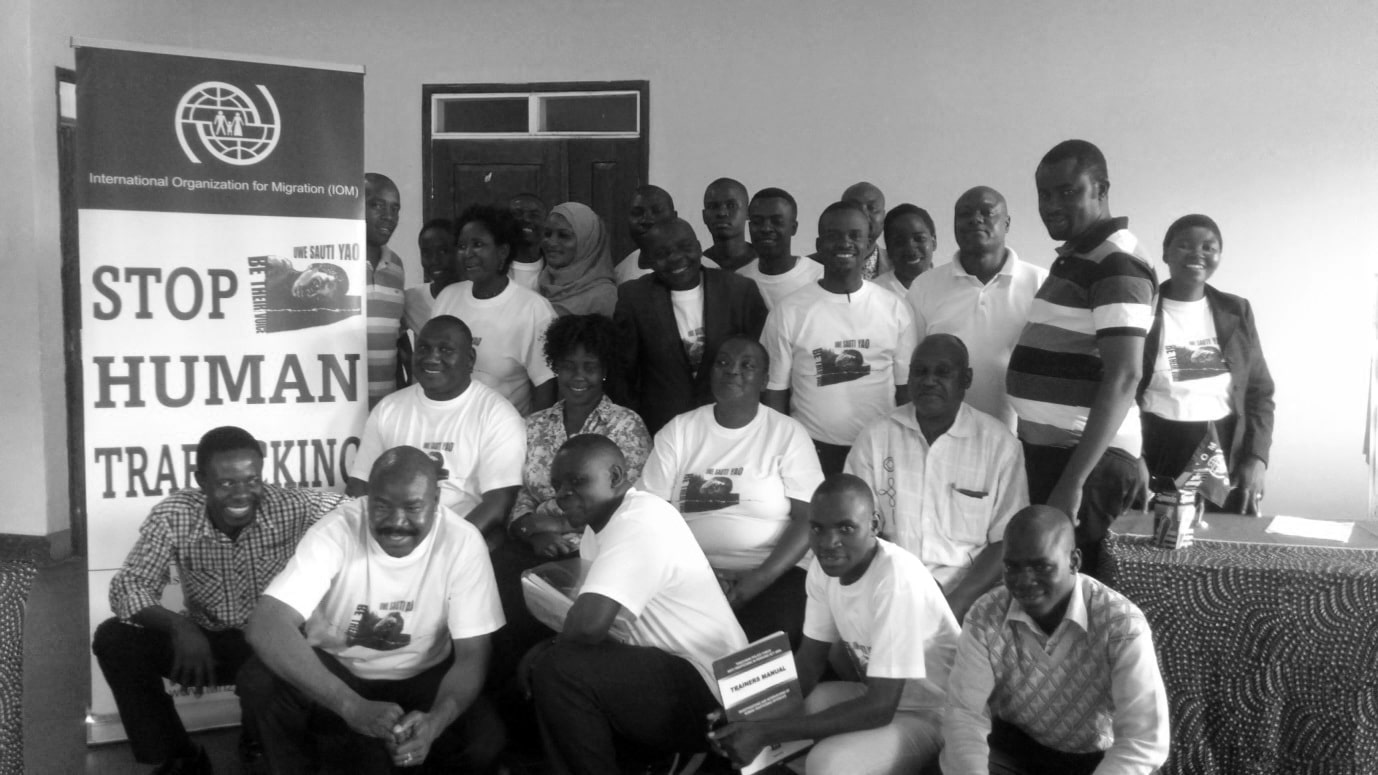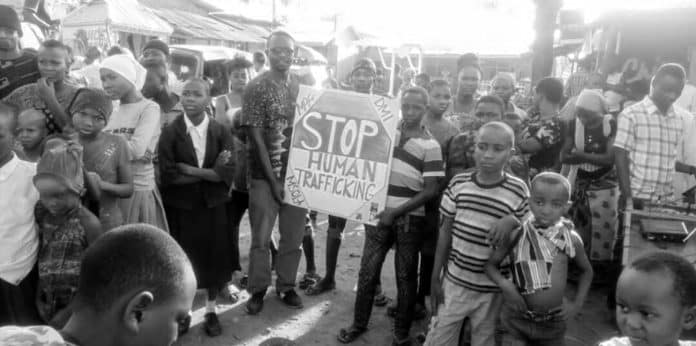Human Trafficking in Tanzania – Prosecution, Protection, Prevention
Human trafficking in Tanzania is a challenging issues since the country currently serves as a destination, transit and source for children, women and men who are trafficked for sexual slavery. Within the nation, males are trafficked for labor on mines, farms, as well as the informal economy. Tanzanian females are transported from rural regions to urban areas and Zanzibar island for commercial sexual abuse and domestic slavery; some domestic labors fleeing violent employers become victims of forced prostitution. Unregistered agencies in some districts engage in the recruitment of children from rural places to work as domestic assistants in the capital and are subjected exploitation. Tanzanian adults and children are allegedly trafficked to Mozambique, Kenya, Uganda, South Africa, Yemen, Ethiopia, Oman, Saudi Arabia, the United Arab Emirates, Pakistan, the US, the United Kingdom, France, China and Italy, among other nations. Children and adults from Kenya and Burundi, as well as Bangladesh, Yemen, Nepal and India, are trafficked for labor in Tanzania’s agricultural, mining and domestic service sectors, and are occasionally trafficked for sex. Tanzania’s government does not entirely adhere to the basic criteria for the eradication of human trafficking, although it is working hard to achieve this.
In 2017, the US State Department’s Office to Monitor and Combat Human Trafficking ranked the country as “Tier 2.”
Prosecution
Last year, the country’s anti-trafficking law enforcement operations improved considerably as a consequence of expanded police training, unprecedented government financing for the Anti-Human Trafficking Unit, and raised awareness throughout the country’s law enforcement bodies. The rule does not ban all kinds of human trafficking in Tanzania, while Zanzibar has its own legal code separate from the rest of the country. On the mainland, human traffickers may be sentenced under existing laws that make selling people, child labor, forced labor, and other sexual crimes illegal. Traffickers in Zanzibar can be sentenced under the Penal Act, which makes abduction, kidnapping, and slavery illegal. Tanzania’s Cabinet adopted the law in January 2008, after a 6-month timeframe for Zanzibar to review the drafted anti-trafficking law, and submitted it to the Parliament for a maiden reading after two weeks. The bill was subsequently sent to a board for debate and modification, with a vote in Parliament likely before 2008 ends. During the reporting period, the government aggressively investigated incidents of human trafficking using existing laws; nevertheless, no charges or convictions were reported.
All tips related to human trafficking in Tanzania provided to the law enforcers by any law enforcement agencies or the public were investigated by the Anti-Human Trafficking Unit. While the inquiry is ongoing, the accused has been freed on bond. In addition, the team resumed investigating a brothel in Zanzibar that was selling minors over the internet; Which is a new form of cybercrime in the country, and police are being trained on how to handle such crime.
Using recently obtained mobile phone technology, Tanzanian authorities cooperated with Interpol to find a suspected victim of trafficking in South Africa. The Government of Zanzibar’s specialist anti-trafficking training program was begun in April 2007 with the help of a foreign-sponsored “trainer’s training” scheme for 18 immigration officers and police in Zanzibar. As a consequence, in June 2007, the Zanzibari government co-trained 22 immigration agents with a US anti-trafficking specialist. In 2007, 332 law enforcement officers on the mainland underwent anti-trafficking training. Low-rank immigration officers are suspected of being involved in, or tolerating, human trafficking, although this has yet to be confirmed.
Protection

During the reporting period, the government made noteworthy efforts to safeguard victims of human trafficking in Tanzania, although continuing to be hampered by inadequate resources. Three non-governmental organizations (NGOs) were often enlisted by government officials to help victims of human trafficking with refuge, rehabilitation and counseling. In areas where victim aid was available, government officials recommended victims of trafficking to the NGOs. In 2007’s 2nd quarter, for example, a non-governmental organization shelter got 23 female victims, one who was referred by a social worker and 17 of whom were recommended by police. The Anti-Human Trafficking section altered its approach in January 2008, no longer forcing victims of sex trafficking to travel to a station to give a statement; instead, a female officer in visits shelters in plains-clothes to get victims’ testimonies in a private set up. In order to better connect with female victims, the Unit has employed a female sergeant.
Citizens can call a crime hotline that operates around the clock and is operated by police officers to report suspected victims of human trafficking in Tanzania anonymously. While being significantly hampered by a shortage of funds, the Ministry of Labor allocated $60,000 for child labor investigations through its Labor Administration and Inspection Services. About 1,100 victims of child labor were removed from their situations by the Ministry of Labor in 2007, with the majority of them being given the option to make up for lost schooling by getting enrolled in one of the three hundred and five Community Learning Centers owned by the Ministry of Education. The government typically encourages victims to help in investigating and the consequent punishment of their traffickers, however, the lack of processes for victim protection probably resulted in most international victims being deported before being recognized or allowed to testify in court proceedings. Non- Tanzanian victims are not given legal options to avoid being deported to countries where they would encounter hardship or retaliation. In a few situations, Tanzanian officials were compelled to keep possible victims in jails due to a lack of suitable shelter facilities.
Prevention of Human Trafficking in Tanzania
As at the period of reporting, Tanzania’s political resolve to combat human trafficking grew substantially, resulting in more concrete preventive initiatives. The personal dedication of President Jakaya Kikwete to combating human trafficking in Tanzania has sped up the writing of anti-trafficking laws and training law enforcers. The Anti-Human Trafficking Unit’s staff featured on television and radio commercials and distributed pamphlets on human trafficking, resulting in a large rise in the leads given to the unit in 2007’s last 6 months. A trainers session lasting for half a day on human trafficking was held by the Ministry of Health‘s National AIDS Control Program for forty-one healthcare coordinators from twenty-one areas; these trainers subsequently trained healthcare professionals in respective districts. Before being deployed as part of international peacekeeping missions, Tanzanian citizens get training on human rights, which includes lessons on women’s and gender rights, civilian protection, and the international humanitarian law.
Download the document human trafficking in Tanzania PDF for more exploration of the challenge in the country.
For more articles related to Laws of Tanzania (Acts), click here!

































